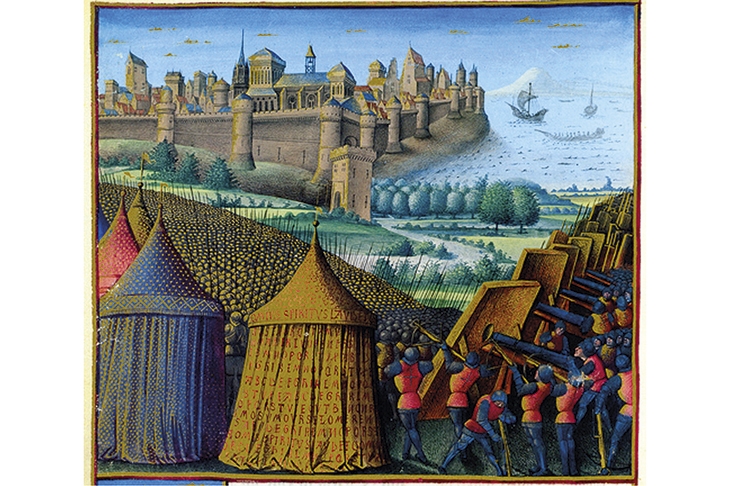One of the strange effects that modernist, progressive society has had on what the French Annales school would refer to as our civilisation’s mentalité is the almost complete attenuation of memory about what the crusades were, why they were fought and what part they played in a multi-century struggle between two successful, expansionary and universal religions. Though this struggle is still being waged today, we’ve become expert at not noticing it.
Even at the level of military history, the crusaders have been written off with a hastily scribbled judgment that amounts to: ‘Invaded the Middle East and captured Jerusalem. Eventually driven into the sea by the brilliant generalship of Saladin.’ In 1954 Major General J.F.C. Fuller in his Military History of the Western World reminded his readers that the Byzantines saw the Franks (a collective term for crusaders, wherever they hailed from) as illiterate barbarians, and dismissively pinned their failure to capture Damascus on their ‘ignorance of strategy’.

Get Britain's best politics newsletters
Register to get The Spectator's insight and opinion straight to your inbox. You can then read two free articles each week.
Already a subscriber? Log in







Comments
Join the debate for just $5 for 3 months
Be part of the conversation with other Spectator readers by getting your first three months for $5.
UNLOCK ACCESS Just $5 for 3 monthsAlready a subscriber? Log in